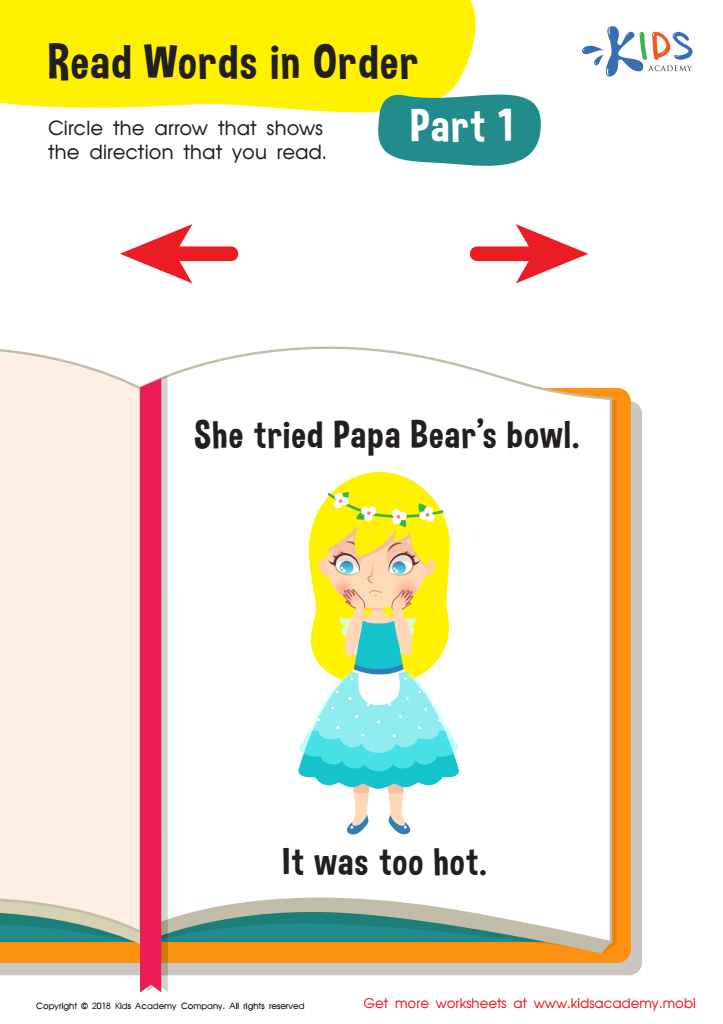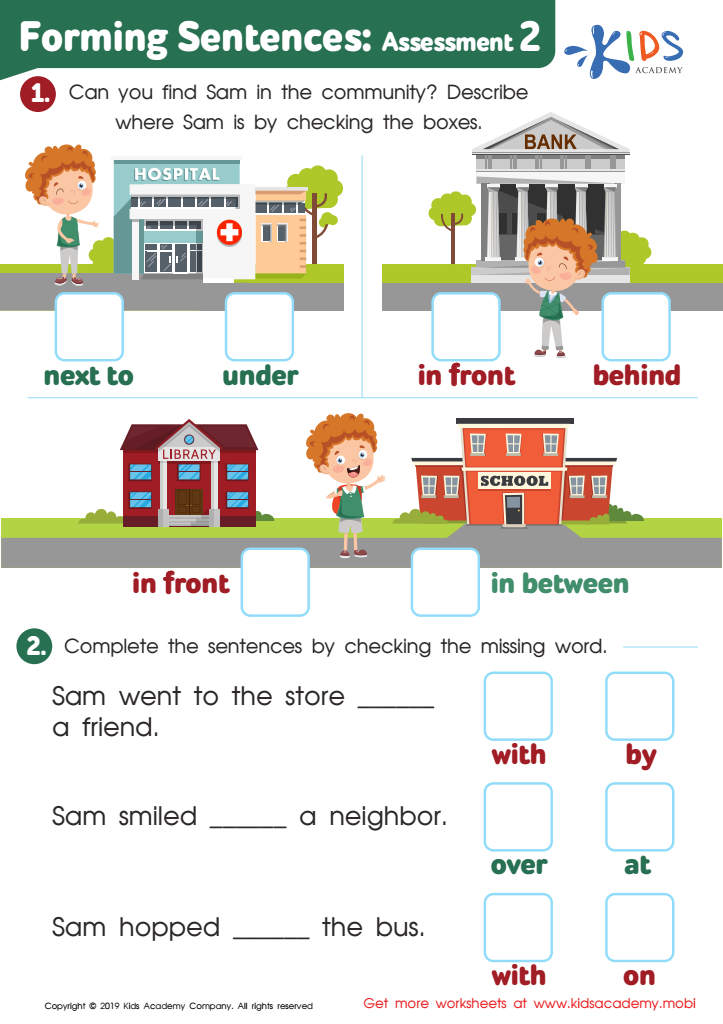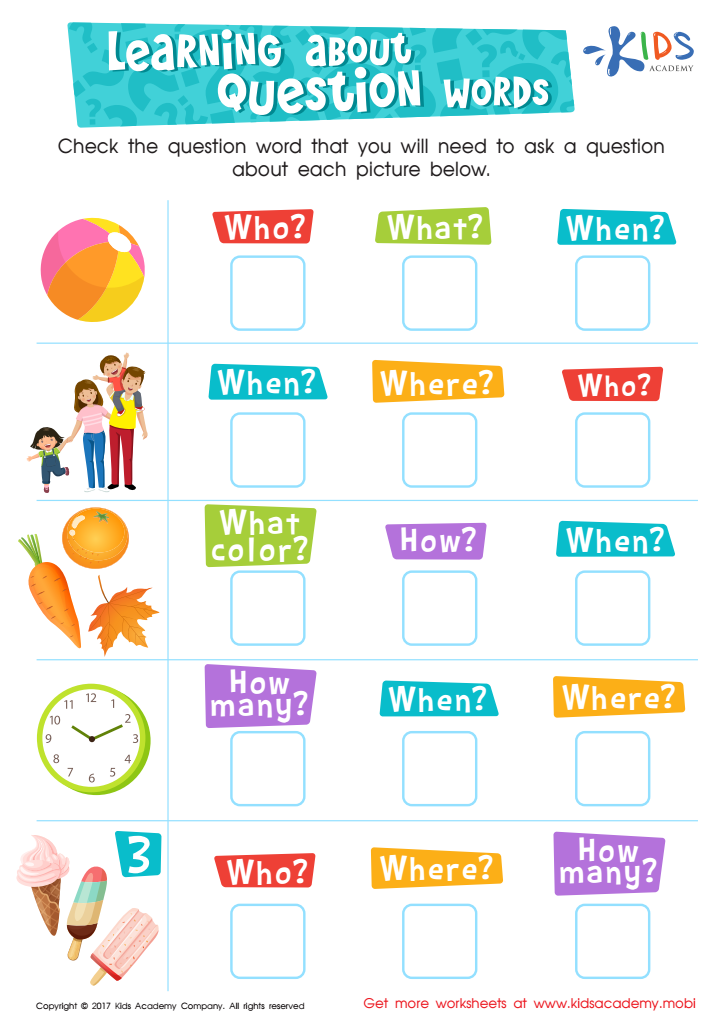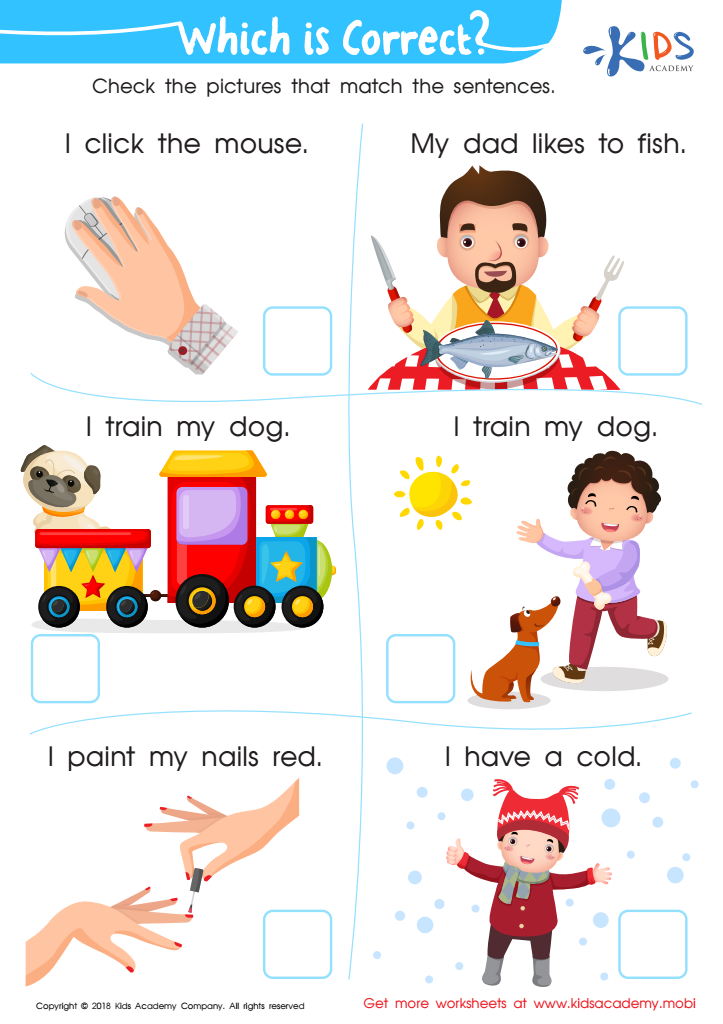Sentence construction Grammar Worksheets for Ages 3-5
4 filtered results
-
From - To
Explore our engaging Sentence Construction Grammar Worksheets designed for children ages 3-5! These fun and colorful worksheets help young learners develop essential writing skills by introducing the basics of sentence formation. Each activity is tailored to enhance vocabulary, reinforce grammar concepts, and encourage creativity in expressing ideas. As kids practice constructing sentences through playful exercises, they build confidence and a strong foundation for future writing. Perfect for home or classroom use, our worksheets make learning grammar enjoyable while fostering a love for language. Start your child's journey towards effective communication today with our interactive and educational resources!


Read Words Order Part 1 Worksheet


Forming Sentences: Assessment 2 Worksheet


Learning about Question Words Worksheet


Which Is Correct? Worksheet
Sentence construction and grammar are fundamental components of early language development, particularly for children aged 3-5. At this stage, children's language skills are rapidly evolving; they are beginning to form sentences, express thoughts, and communicate effectively. Parents and teachers play a crucial role in fostering this development through engaging activities and discussions.
Understanding sentence construction helps children to organize their thoughts coherently, which lays the groundwork for successful communication. Proper grammar equips them with the tools needed to clearly convey their intentions and emotions. Furthermore, exposure to correct sentence structures enhances vocabulary acquisition, as children learn new words within context.
Additionally, a solid grasp of grammar can boost children’s confidence in their language abilities. It can help them articulate their feelings, ask questions, and engage in storytelling, which is vital for cognitive development and creativity.
Moreover, the skills learned in these formative years serve as a foundation for future literacy. By nurturing proper sentence construction and grammar, parents and teachers not only support children’s immediate communication needs but also set them up for long-term academic success. Investing time in this area ultimately benefits children's social interactions, academic readiness, and self-esteem.
 Assign to My Students
Assign to My Students


.jpg)












